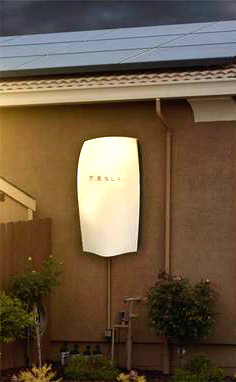Tesla eyes UK power
 Tesla is preparing to enter the UK energy market as an electricity supplier.
Tesla is preparing to enter the UK energy market as an electricity supplier.
A recent job listing reveals Tesla's plan to register as an electricity provider and launch a retail electricity product in the UK.
The company is reportedly searching for an experienced energy executive to fill the role of UK head of operations for Tesla Electric.
Tesla's service, expected to be available to owners of the Powerwall home battery, will involve selling electricity to households and buying back stored energy during peak demand.
Powerwall batteries can be programmed to charge overnight when energy costs are low and release stored energy during the day when grid prices are higher.
The job advertisement, based in London or Manchester, emphasises Tesla's aim to support the transition to 100 per cent renewable energy by maximising the use of home batteries. Tesla, known for its electric vehicles, also offers home batteries with an installation cost of around £9,500 (AU$18,400).
An estimated 10,000 to 20,000 Powerwall units have been installed in UK households.
In addition to households, Tesla's service may eventually extend to Tesla vehicle owners. The UK’s Office of Gas and Electricity Markets (Ofgem) is considering allowing electric vehicles to sell excess electricity back to the grid.
This move aligns with Elon Musk's broader vision to eliminate fossil fuels globally, as outlined in his “master plan” (PDF).
The plan entails transitioning people to electric cars, significantly increasing renewable energy generation, and shifting households to heat pumps.
Tesla previously launched an energy utility in Texas, where it enables homeowners to sell surplus electricity from their batteries to the grid during peak times and purchase it back when prices are lower.
Users have reported substantial savings, with Tesla's off-peak rates being approximately one-third lower than those of other energy providers in the state.
The introduction of Tesla into the UK energy market comes at a time when the industry is facing significant challenges, including rising wholesale costs, provider bankruptcies, and limited competition due to price caps.







 Print
Print